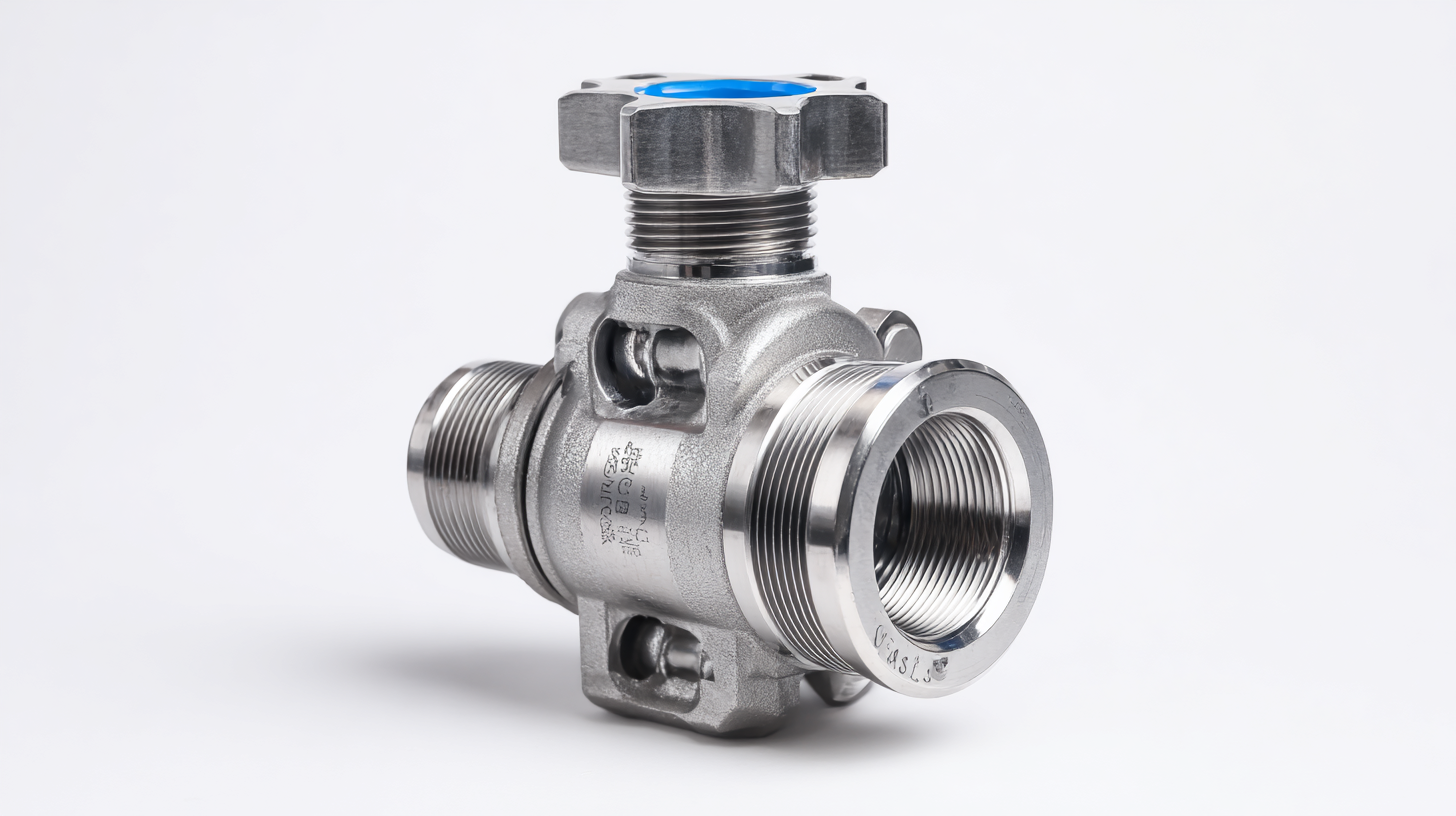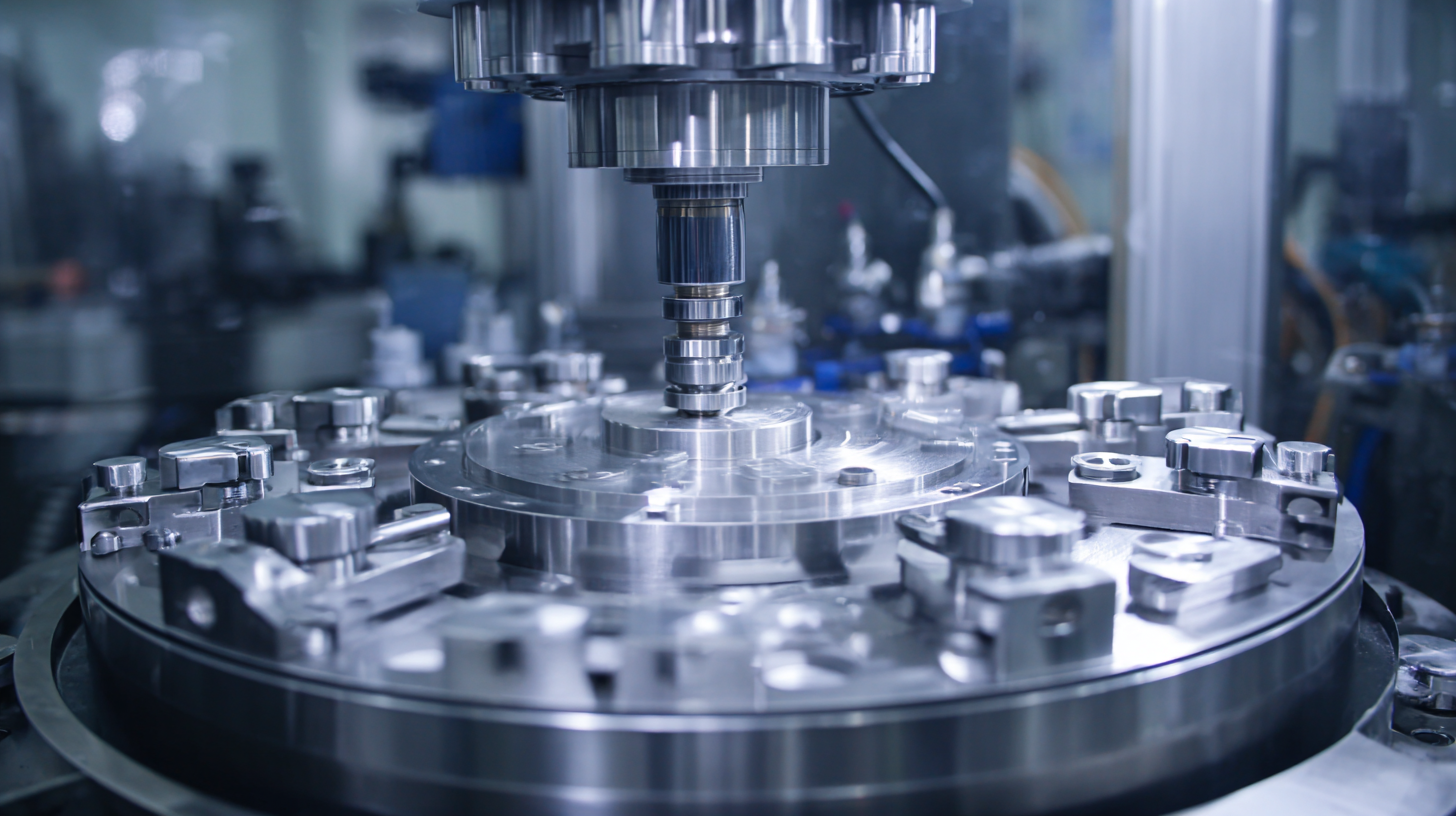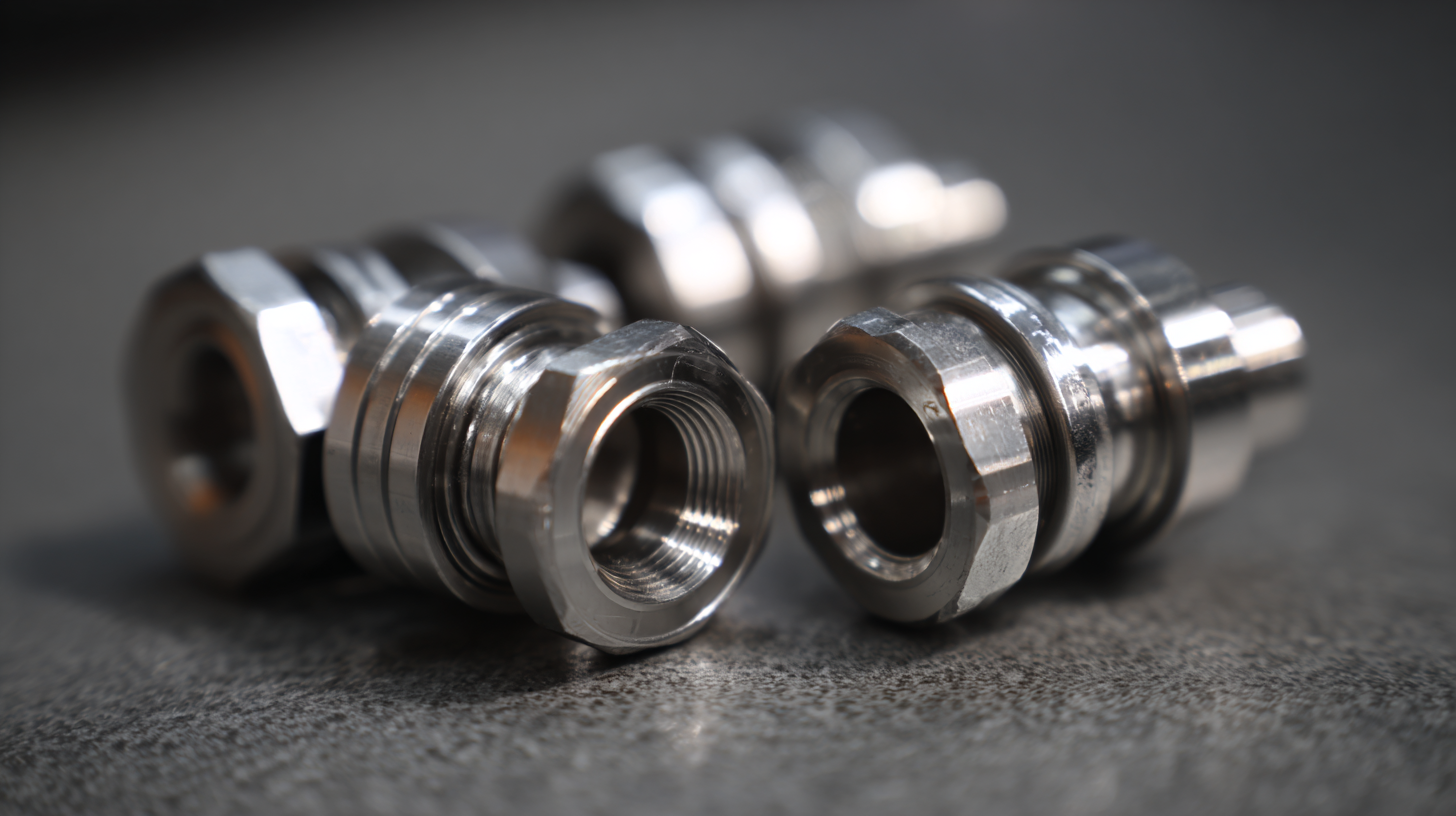In the rapidly evolving landscape of international trade, the significance of product certifications cannot be overstated, especially for niche components such as wafer valves, which are critical in various industrial applications.
 According to a report by Global Market Insights, the global wafer valve market is expected to surpass $5 billion by 2026, driven by increasing demand in sectors like oil and gas, water treatment, and chemical processing.
The rise of "Made in China" products highlights the importance of understanding certification requirements, as they ensure quality and compliance with international standards.
As manufacturers strive to enhance their global competitiveness, navigating through the complexities of trade certifications becomes essential for buyers who seek the most reliable and efficient wafer valves in the market.
Emphasizing quality assurance, the phrase "中国智造,全球热销,品质保证" encapsulates the commitment to excellence that underpins the successful international distribution of these key components.
According to a report by Global Market Insights, the global wafer valve market is expected to surpass $5 billion by 2026, driven by increasing demand in sectors like oil and gas, water treatment, and chemical processing.
The rise of "Made in China" products highlights the importance of understanding certification requirements, as they ensure quality and compliance with international standards.
As manufacturers strive to enhance their global competitiveness, navigating through the complexities of trade certifications becomes essential for buyers who seek the most reliable and efficient wafer valves in the market.
Emphasizing quality assurance, the phrase "中国智造,全球热销,品质保证" encapsulates the commitment to excellence that underpins the successful international distribution of these key components.
 International trade certifications play a crucial role in the purchasing process of wafer valves, ensuring that products meet specific quality, safety, and performance standards. According to a report by MarketsandMarkets, the global valve market is expected to grow from $70.25 billion in 2021 to $92.56 billion by 2026, underscoring the importance of these certifications as buyers seek reliable suppliers in an increasingly competitive landscape. Compliance with international standards, such as ISO 9001 and ASME, can significantly influence purchasing decisions, as they demonstrate a manufacturer's commitment to quality and safety.
International trade certifications play a crucial role in the purchasing process of wafer valves, ensuring that products meet specific quality, safety, and performance standards. According to a report by MarketsandMarkets, the global valve market is expected to grow from $70.25 billion in 2021 to $92.56 billion by 2026, underscoring the importance of these certifications as buyers seek reliable suppliers in an increasingly competitive landscape. Compliance with international standards, such as ISO 9001 and ASME, can significantly influence purchasing decisions, as they demonstrate a manufacturer's commitment to quality and safety.
Furthermore, understanding the regulatory frameworks surrounding wafer valve certifications can help purchasers mitigate risks associated with non-compliance. A study by Research and Markets indicates that approximately 35% of companies experience delays in procurement processes due to certification issues. By prioritizing suppliers who have attainable and recognized certifications, buyers can ensure not only the integrity of the valves but also the efficiency of their supply chains. This strategic approach is essential for maintaining operational continuity and achieving long-term project success.
When purchasing wafer valves for global markets, understanding the various certifications is crucial for ensuring compliance with international standards. The most significant certifications include the ISO 9001, which guarantees a quality management system within manufacturers, ensuring that the products meet customer and regulatory requirements. Additionally, certifications like the API 600 and FDA compliance indicate that the valves are suitable for use in specific applications, from oil and gas to food processing. These certifications not only assure product reliability but also enhance the manufacturer's credibility in international trade.
Another critical certification is the CE marking, necessary for product sales within the European Economic Area. It signifies that the product meets EU safety, health, and environmental requirements. For industries that prioritize environmental sustainability, certifications such as ISO 14001 demonstrate a commitment to minimizing the ecological impact during production processes. Understanding these key certifications allows buyers to navigate the complexities of international trade effectively, ensuring they procure the best wafer valves that meet stringent industry standards and regulatory requirements.
When it comes to purchasing wafer valves, evaluating certifications is crucial for ensuring product quality and compliance with international standards. Certified wafer valves often meet stringent requirements that guarantee their performance and reliability, making them the preferred choice for industries that demand precision and safety. Buyers should familiarize themselves with key certifications, such as ISO, CE, and API, which indicate the valve's ability to withstand operational pressures and environmental conditions.
To make an informed choice, it's essential to consider the manufacturer's reputation and the certifications they hold. Look for companies with proven track records in quality assurance and compliance. Additionally, review third-party test reports and customer testimonials to gain insight into the valves' performance in real-world applications. By prioritizing certified products, purchasers can minimize risks and ensure that they are investing in durable, high-quality wafer valves tailored to their operational needs.
Navigating the certification processes for wafer valves presents complex challenges that can significantly impact purchasing decisions. As global demand for efficient and reliable valve solutions continues to rise, the need for standardized certifications has become paramount. According to a report by MarketsandMarkets, the global valve market, including wafer valves, is projected to reach USD 85.2 billion by 2027, growing at a CAGR of 4.6%. However, the certification landscape remains fragmented across regions, complicating compliance for manufacturers and purchasers alike.
One of the critical hurdles in this certification journey is the varying regulatory requirements across different countries. For instance, while the American Society of Mechanical Engineers (ASME) sets stringent standards in the U.S., the European Conformity (CE) marking requirements often differ from those in Asia. This divergence means that manufacturers must invest significant time and resources to ensure their products meet the necessary certifications before entering new markets. Research from the International Trade Administration indicates that nearly 70% of companies face delays or increased costs due to these compliance challenges. As industry stakeholders strive for seamless international trade, understanding and efficiently navigating these certification processes will be crucial in optimizing the purchasing of the best wafer valves.
| Certification Type | Issuing Authority | Validity Period | Key Requirements | Challenges Faced |
|---|---|---|---|---|
| ISO 9001 | International Organization for Standardization | 3 years | Quality management principles, Documentation, Audits | Understanding documentation requirements |
| CE Marking | European Commission | Ongoing | Compliance with EU standards, Testing | Navigating EU regulations |
| API 609 | American Petroleum Institute | 3 years | Design standards, Performance testing | Technical documentation and testing |
| UL Certification | Underwriters Laboratories | 3-5 years | Safety standards, Evaluation, Testing | Complex testing protocols |
| NACE Certification | National Association of Corrosion Engineers | 5 years | Corrosion resistance testing, Materials analysis | Specific material compatibility issues |
When sourcing wafer valves for international trade, adhering to the relevant standards is crucial for ensuring quality and compliance. Industry reports, such as those by the International Organization for Standardization (ISO), indicate that over 30% of valve failures can be attributed to non-compliance with established standards. Therefore, understanding the applicable certifications, such as ISO 9001 and API 6D, is essential for manufacturers and buyers alike.
Tip: Conduct thorough research on the certifications required for your specific market. Identifying the local and international standards applicable to your products will help in preventing costly compliance failures. Engaging with certified suppliers is vital to mitigating risks associated with non-compliance.
Furthermore, it's imperative to implement a robust quality management system (QMS) within your purchasing processes. This ensures that all valve specifications meet local regulations and international standards. According to a report by the American National Standards Institute (ANSI), organizations that adopt an effective QMS can reduce their non-conformance rates by up to 50%. Prioritizing certified suppliers not only enhances the reliability of your supply chain but also builds trust with your business partners.
Tip: Regularly audit your suppliers to ensure ongoing compliance with international standards. Establishing a feedback loop can facilitate continuous improvement and adherence to best practices in valve procurement.




Same Day Shipping
ISO Certified Production